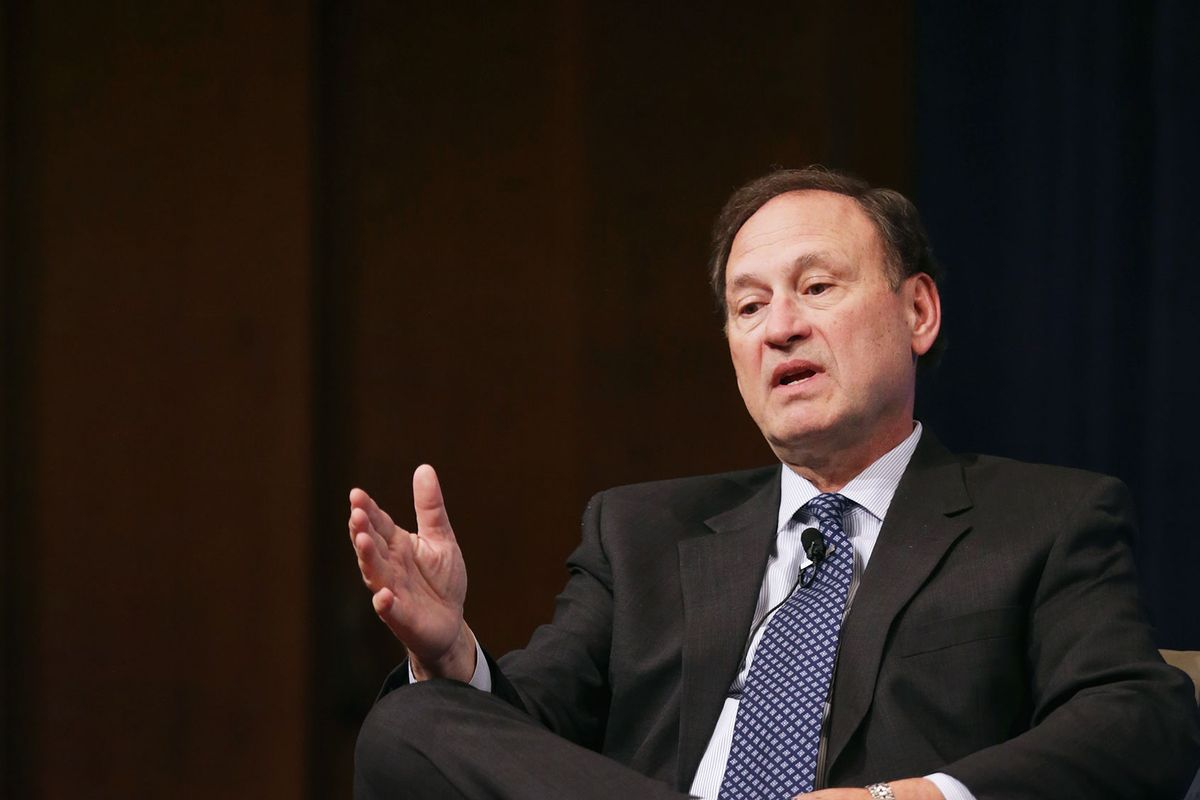U.S. Supreme Court Justice Samuel Alito says he was "not even aware" of the upside-down American flag waving outside his Virginia home in the days after the January 6 insurrection, telling lawmakers Wednesday that he won't recuse himself from cases involving Donald Trump and the former president's claim of immunity from prosecution.
In a letter to members of Congress, distributed by the Supreme Court and reported on by CNN, Alito argued that the controversy was much ado about nothing. The missive comes after The New York Times cast doubt on the justice's previous assertion that the upside-down flag, a symbol of distress adopted by election-denying Trump supporters, was in response to a fight with neighbors — a fight, the Times reported, that actually took place a month later than claimed.
The Times also reported that an "Appeal to Heaven" flag, favored by far-right Christian nationalists, flew outside Alito's beach house in New Jersey.
"The two incidents you cite do not meet the conditions for recusal," Alito wrote. "As I have stated publicly, I had nothing whatsoever to do with the flying of that flag. I was not even aware of the upside-down flag until it was called to my attention. As soon as I saw it, I asked my wife to take it down, but for several days, she refused."
Alito again insisted that the flag was related to a dispute with neighbors, despite the holes in that story. "My wife's reasons for flying the flag are not relevant for present purposes, but I note that she was greatly distressed at the time due, in large part, to a very nasty neighborhood dispute in which I had no involvement."
The "Appeal to Heaven" banner was also his wife's fault, Alito said, writing that she is "fond of flying flags." He continued: "She may have mentioned that it dates back to the American revolution, and I assumed she was flying it to express a religious and patriotic message."
"A reasonable person who is not motivated by political or ideological considerations or a desire to affect the outcome of Supreme Court cases would conclude that this event does not meet the applicable standard for recusal," he added.
The letter, addressed to Sen. Dick Durbin, D-Ill., and Sheldon Whitehouse, D-R.I., was one of two that Alito sent to members of Congress. In another, he defended the flags on free speech grounds.
"My wife is a private citizen, and she possesses the same First Amendment rights as every other American," he wrote.
Several legal experts have challenged that argument before, noting that judges, owing to their positions, are not private citizens and are required to avoid even the appearance of bias.



Shares